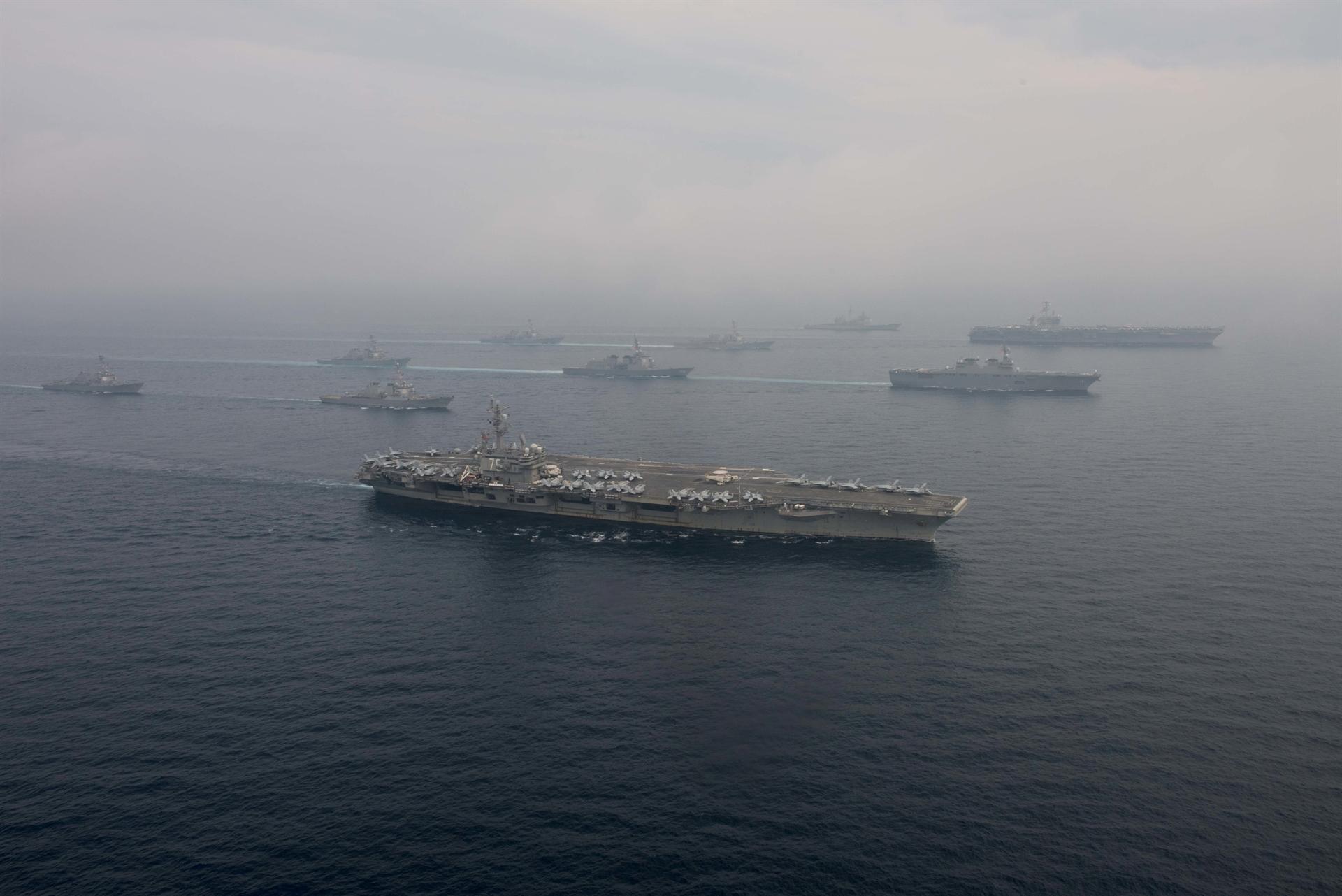
The United States' military presence in the Gulf used to be a serious threat but now it is an opportunity, a senior commander of Iran's Revolutionary Guards said on May 12, according to the Iranian Students' News Agency (ISNA).
The U.S. military has sent forces, including an aircraft carrier and B-52 bombers, to the Middle East to counter what U.S. officials have said are "clear indications" of threats from Iran to its forces there.
The USS Abraham Lincoln is replacing another carrier rotated out of the Gulf last month.
"An aircraft carrier that has at least 40 to 50 planes on it and 6,000 forces gathered within it was a serious threat for us in the past but now...the threats have switched to opportunities," Amirali Hajizadeh, head of the Guards' aerospace division said.
He added, "If [Americans] make a move we will hit them in the head."
The commander of the Guards, Major General Hossein Salami, said in a parliament session on May 12 that the United States has started a psychological war in the region, according to a parliamentary spokesman.
"Commander Salami, with attention to the situation in the region, presented an analysis that the Americans have started a psychological war because the comings and goings of their military is a normal matter," said Behrouz Nemati in a summary of the Salami's comments, according to parliament's ICANA news site.
Salami was appointed head of the Guards last month.
Separately, Iran's Foreign Minister Mohammad Javad Zarif said in a tweet on May 12 that U.S. national security adviser John Bolton had made plans for the United States to withdraw from a landmark 2015 nuclear deal and take a more aggressive posture toward the Islamic Republic even before he took up his current post.
Zarif tweeted a link to a 2017 National Review article written by Bolton with the headline "How to Get Out of the Iran Nuclear Deal."
A detailed blueprint for #FakeIntelligence, #ForeverWar and even empty offers for talks-only phone numbers were not included," Zarif wrote in the tweet.
CNN reported on May 12 that the White House had passed a telephone number to the Swiss for contacting U.S. President Donald Trump in case Iranian officials want to hold talks.
The Swiss embassy in Tehran represents U.S. interests in the Islamic Republic. (Reporting By Babak Dehghanpisheh; Editing by Toby Chopra and Elaine Hardcastle)